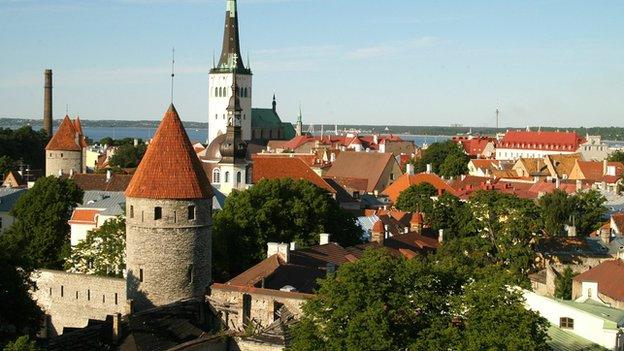Russia 'danger' to Latvia, Lithuania and Estonia - Fallon
- Published
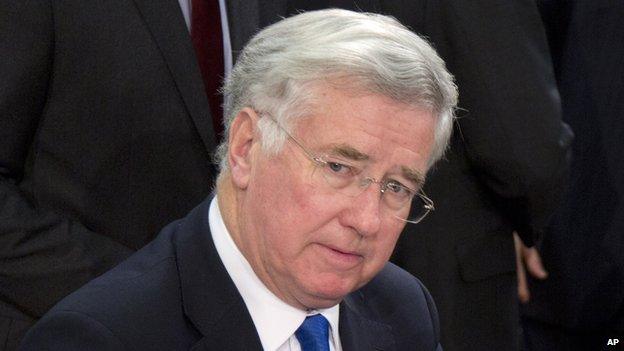
Nato must be ready for aggression in "whatever form" said Michael Fallon
There is a "real and present danger" of Russia trying to destabilise the Baltic states of Latvia, Lithuania and Estonia, the UK defence secretary says.
Michael Fallon said he was worried about "pressure" from Russian President Vladimir Putin on the ex-Soviet states, which are Nato members.
Russia might use tactics there similar to those it used in Ukraine, he said.
Shadow foreign secretary Douglas Alexander told the BBC he too had "very real concerns" about the situation.
Mr Fallon's comments came after PM David Cameron called on Europe to tell Russia it faced economic and financial consequences for "many years to come" if it did not stop destabilising Ukraine.
Meanwhile, the Ministry of Defence has said RAF jets were scrambled on Wednesday after two Russian military aircraft were seen off the Cornwall coast.
'Getting ready'
Speaking to journalists from the Times, external and Daily Telegraph, external during a flight to Sierra Leone, where British troops are helping tackle the Ebola outbreak, Mr Fallon said: "I'm worried about Putin.
"I'm worried about his pressure on the Baltics, the way he is testing Nato."
He said Nato must be prepared for aggression from Russia "in whatever form it takes" - because Russia was likely to use covert tactics such as those he said it had used to annex Crimea and during the current Ukraine conflict.
Russia has denied helping pro-Russian separatists, but it has been repeatedly accused of sending weapons and troops and using propaganda to inflame tensions.

Analysis
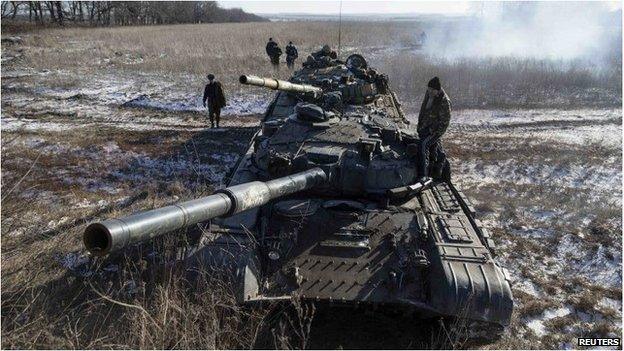
Jonathan Marcus, BBC defence and diplomatic correspondent
The comments from Defence Secretary Michael Fallon are an indication of a fundamental shift in the Nato perception of the crisis in Ukraine.
Nato governments clearly believe that what began as a localised Ukraine problem that strained ties with Moscow has now become a Russia problem, and a Russia problem that is likely to persist for some time.
Ukraine is thus seen as a manifestation of a much broader policy shift on the part of the Russian President Vladimir Putin.
Mr Fallon's belief that there is indeed a potential threat to Nato territory - in particular the Baltic Republics - is widely shared; hence Nato's desire to underline in the most emphatic terms that its security guarantees to its members will be honoured in full.

Mr Fallon went on: "When you have jets being flown up the English Channel, when you have submarines in the North Sea, it looks to me like it's [the situation is] warming up," he said.
Mr Cameron warned that rebels in eastern Ukraine were using Russian military hardware, pointing out: "You can't buy this equipment on eBay, it hasn't come from somewhere else, it's come from Russia and we know that."
He added that one of the principles of Nato - which is made up of 26 European countries as well as the US and Canada - is that an "attack against one or several members is considered as an attack against all".
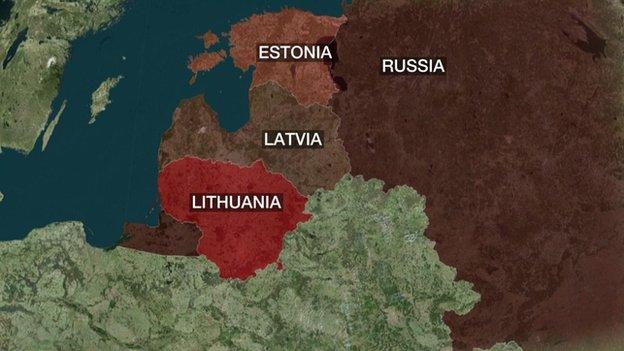
Elsewhere, Admiral Lord West, a former First Sea Lord and Nato commander, said it was important Nato "stands united at this dangerous and difficult moment".
It could not afford to let a line in the sand be crossed if Russia interfered with the Baltic states, he said.
The UK Joint Delegation to Nato tweeted, external that Russia had deployed the country's "most advanced anti-aircraft artillery system" in Ukraine.
- Published20 February 2015
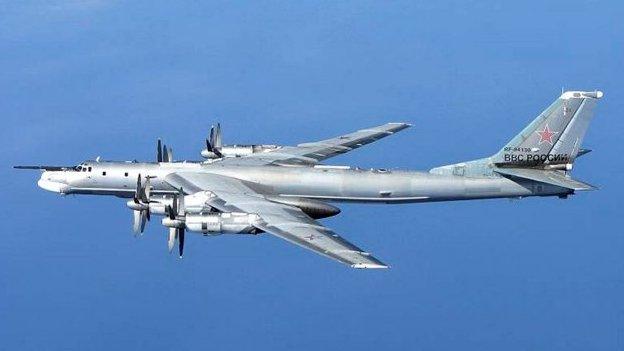
- Published19 February 2015
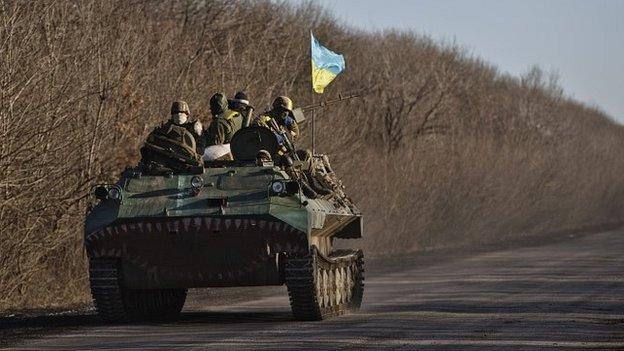
- Published18 February 2015
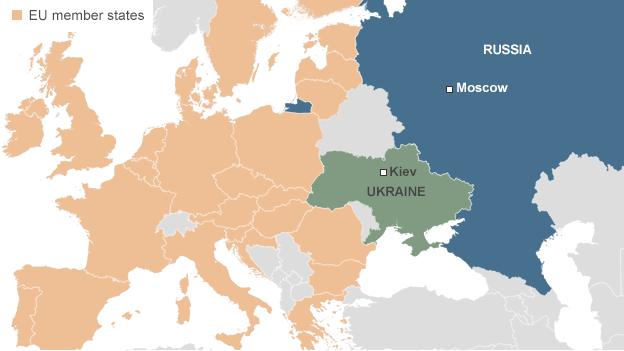
- Published30 January 2015

- Published11 December 2014
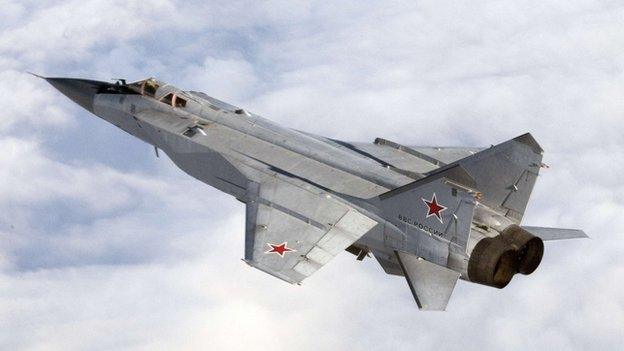
- Published5 September 2014
